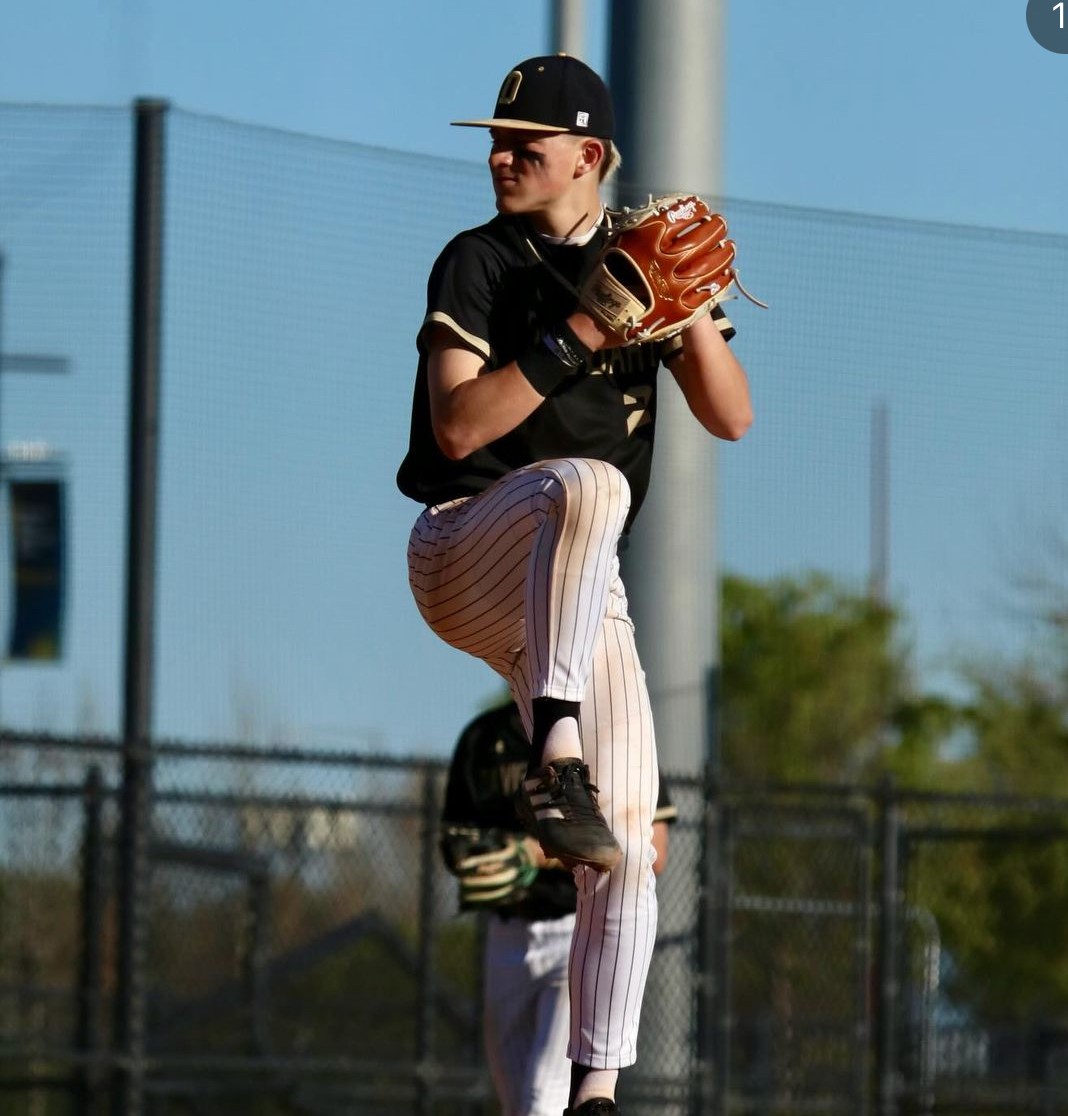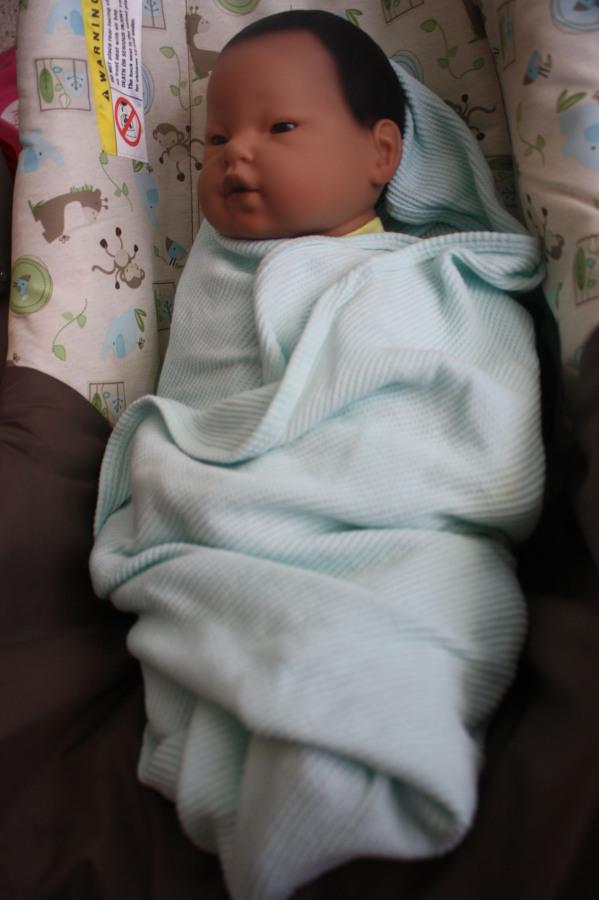RealCare® baby teaches students about parenthood
November 20, 2014
An opportunity in the Child Care and Adult Roles classes allows students to experience parenting firsthand.
The Realityworks® Basic Infant Care Program can be rewarding, yet it can drive the teen totally insane. That is why, if I needed to do a simulation, I’d rather play The Sims®.
Mrs. Miller, a family science teacher, outfitted me with the equipment I needed to begin my own experience with the RealCare® baby. Like a real one, the robotic infant requires TLC, such as rocking, diaper changing, burping, and feeding; likewise, there are improper handlings that are accounted for, which include shaking, no support of the head, and holding it roughly. On Miller’s computer is an external linking system that syncs the baby with the “parent” who chose it. A bag of accessories–four types of clothes, one bottle, and two diapers–also comes with the baby with each having an implanted computer chip acting as a sensor.
Before I left with baby number three, Miller said she set my time with the baby from 3:00 p.m. on Monday, November 17, to 7:00 a.m the next morning. She also told me the infant was a newer model, which could now tell it’s body temperature and how long I left in a certain pair of clothes or the car seat it came with. That would mean, as soon as I came home from school, the simulation would begin, and I would have to take the baby into my arms–literally.
I buckled the baby–which I began to call Phoebe to treat it like the real-deal–into the back seat of my car to avoid paying the $1,000 to reimburse her if she was destroyed. Right at 3:00, when I set her down on the floor at home, I jumped out of fear when she started to breathe. The simulation began, but I figured that I would leave her in the carrier until she really needed my attention.
It was at 4:00 when she first cried. After I scanned my wristband on her chest so she could recognize me as the parent, I started the cycle as her cries became more ear-bleeding: feed, rock, burp, change the diaper. It was the last step that stopped her fussing; I took her onesie off along with the latest diaper, then put on the other one on to receive a cooing of approval from her.
It lasted like this throughout the rest of the afternoon, and over this course I learned to tell what she needed depending on the type of cry. Even when I went to a poetry slam at Weber State University, I had to bring her with me in her outerwear, standing outside the room to avoid disrupting others but still hear the poets. When most of the high-schoolers would frown on me for being a teen dad, the college-age students would accept it, thinking I was as old as they are; when they saw that Phoebe was electronic, however, both groups laughed at their own flood of memories and my supposed misfortune.
When I came back home, I dressed her in the sleepwear, preparing to settle in for the night. With some homework that needed to be completed, I would support the feeding bottle to my chest as I tried to read, then I rocked her until the light breathing told me she was asleep. I rested until 3:30 in the morning, when she needed me to change the diaper and feed her again. She guzzled the bottle down for minutes on end, so I got a book out to read to pass the time until she quieted and I could go back to sleep.
When I came back to school Tuesday morning, I was ready to hand Phoebe back in; it was hard enough being a teenager with homework, but having a person to totally rely on me 24-7 becomes very strenuous. I got back my report of how the simulation went, showing that the only thing I did wrong was miss two diaper changes, each having only the two minutes that Phoebe gave me.
Maybe what made the experience more difficult was the fact that the baby wasn’t alive; therefore, if I took care of it, I never got anything in return: no real genuine love or valued human life. Regardless of how it turned out, the experience might have prepared me to become a parent in the future.



























